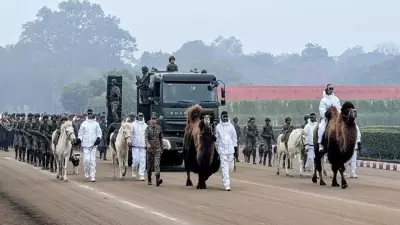
Historic Labour Reform: India Unveils Four Comprehensive Codes
The Government of India has announced a monumental overhaul of the country's labour framework with four new labour codes set to take effect from November 21, 2025. This transformative move replaces nearly three dozen outdated laws with a modern, unified system designed to protect workers while boosting economic growth.
Key Changes: Before vs After Labour Reforms
The new labour ecosystem introduces sweeping changes across employment, wages, worker safety, and compliance. Under the old system, employers were not required to issue appointment letters, but the new codes make written appointment letters mandatory for all workers.
Minimum wages previously applied only to scheduled industries, leaving many workers without coverage. The Code on Wages, 2019 now guarantees a statutory right to minimum wages for all workers, ensuring timely payment.
Social security coverage expands dramatically under the Code on Social Security, 2020. All workers, including gig and platform workers, will receive social security benefits such as Provident Fund, ESIC, and insurance coverage.
Women workers gain significant rights, with restrictions on night shifts and certain occupations lifted. Women can now work at night across all establishments with their consent and proper safety measures, opening doors to higher-paying opportunities.
Healthcare protections strengthen with employers now required to provide free annual health check-ups for workers above 40 years, a provision absent in previous laws.
Simplifying Compliance and Expanding Coverage
The ESIC coverage extends pan-India, becoming mandatory for establishments with even one employee in hazardous processes. For smaller establishments with fewer than 10 employees, coverage becomes voluntary.
The compliance burden reduces significantly with single registration, pan-India license, and single return replacing multiple registrations and filings across various old labour laws.
Prime Minister Narendra Modi hailed the implementation, writing on X: "Shramev Jayate! Today, our Government has given effect to the Four Labour Codes. It is one of the most comprehensive and progressive labour-oriented reforms since Independence."
The Prime Minister emphasized that these codes will serve as a strong foundation for universal social security and protect workers' rights while strengthening India's economic growth and job creation under the Aatmanirbhar Bharat initiative.
The government described the new framework as replacing a fragmented system dating back to the 1930s-1950s with a uniform, modern legal structure that creates a workforce that is protected, productive and aligned with the evolving world of work.





